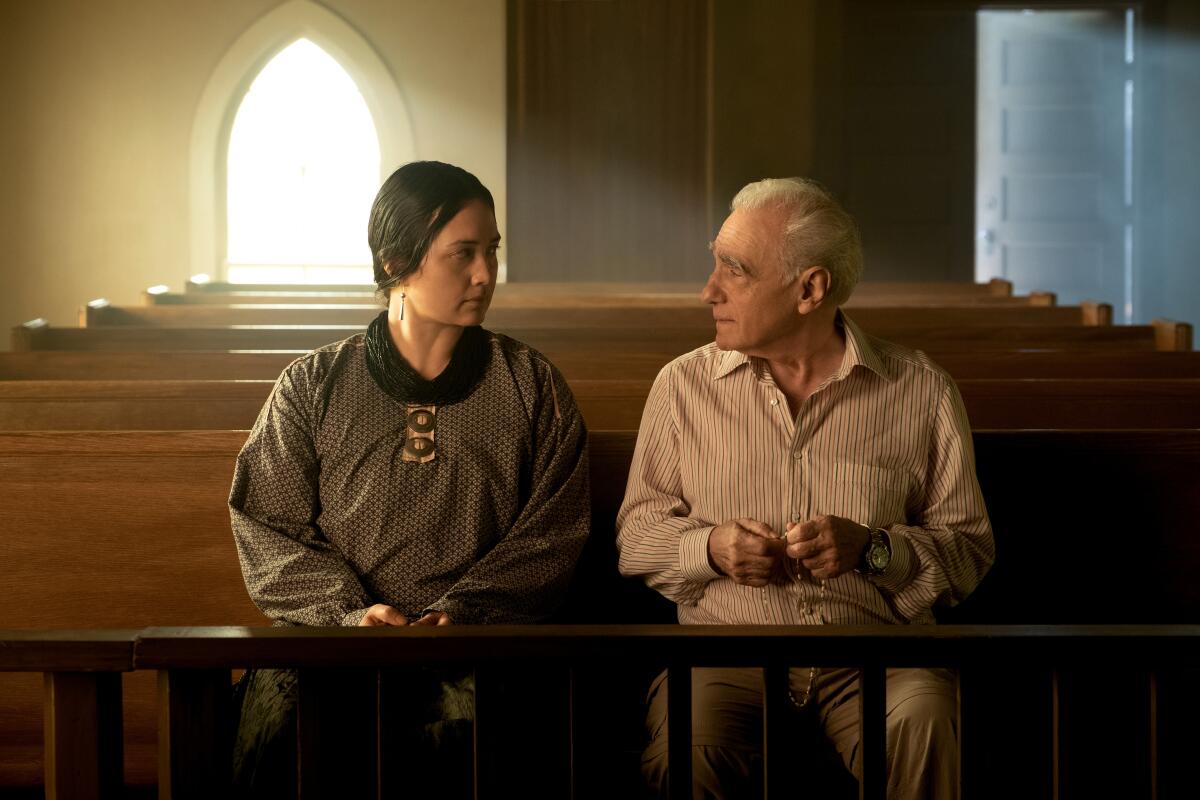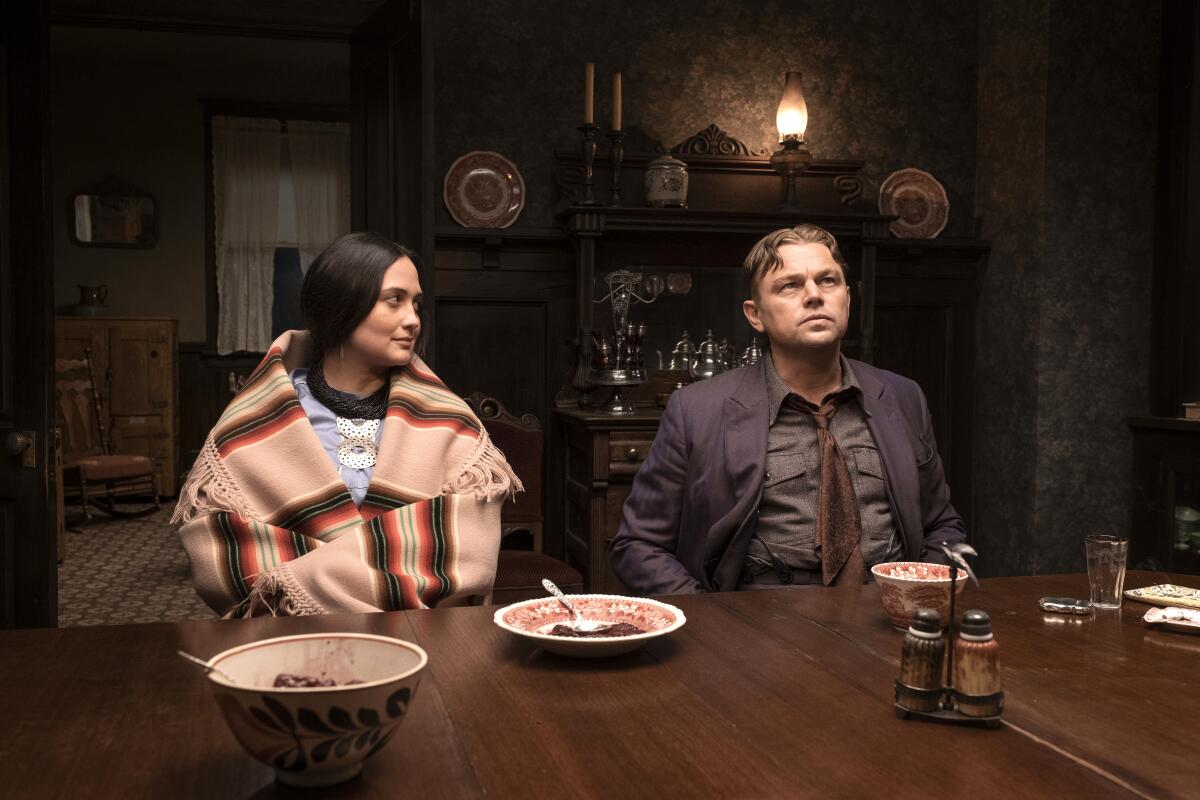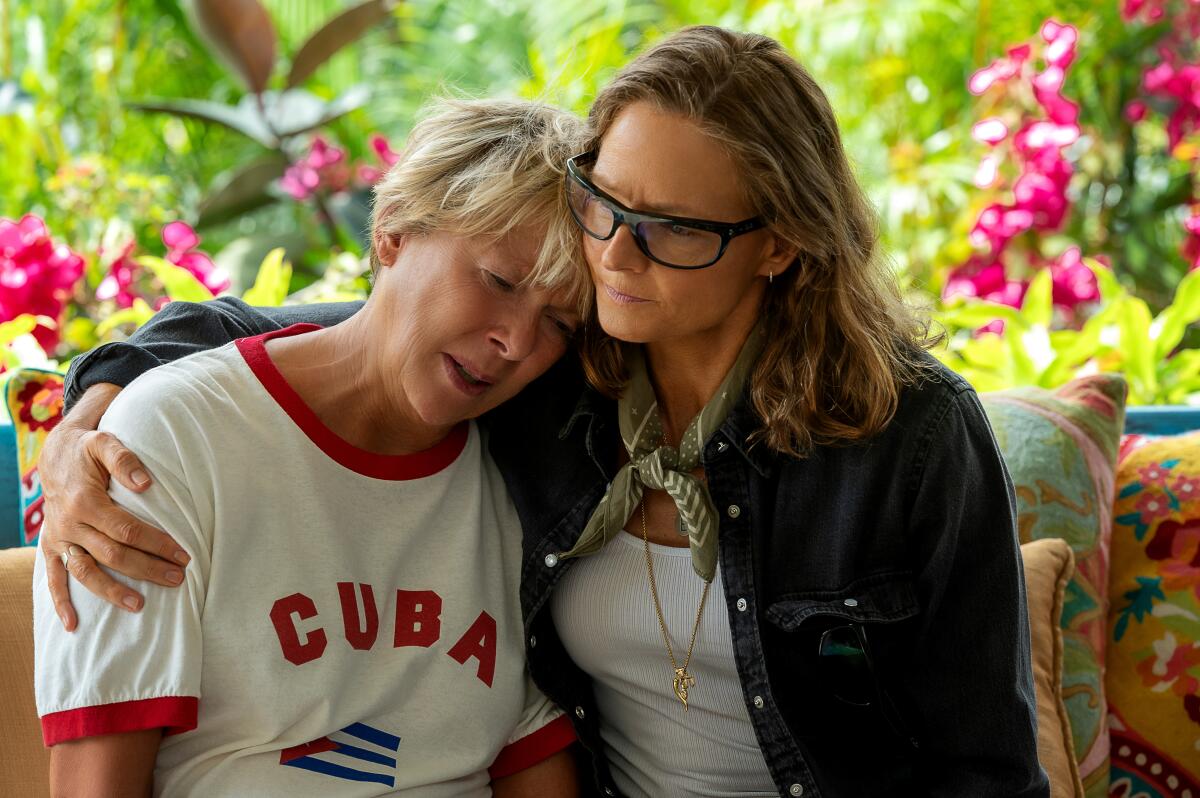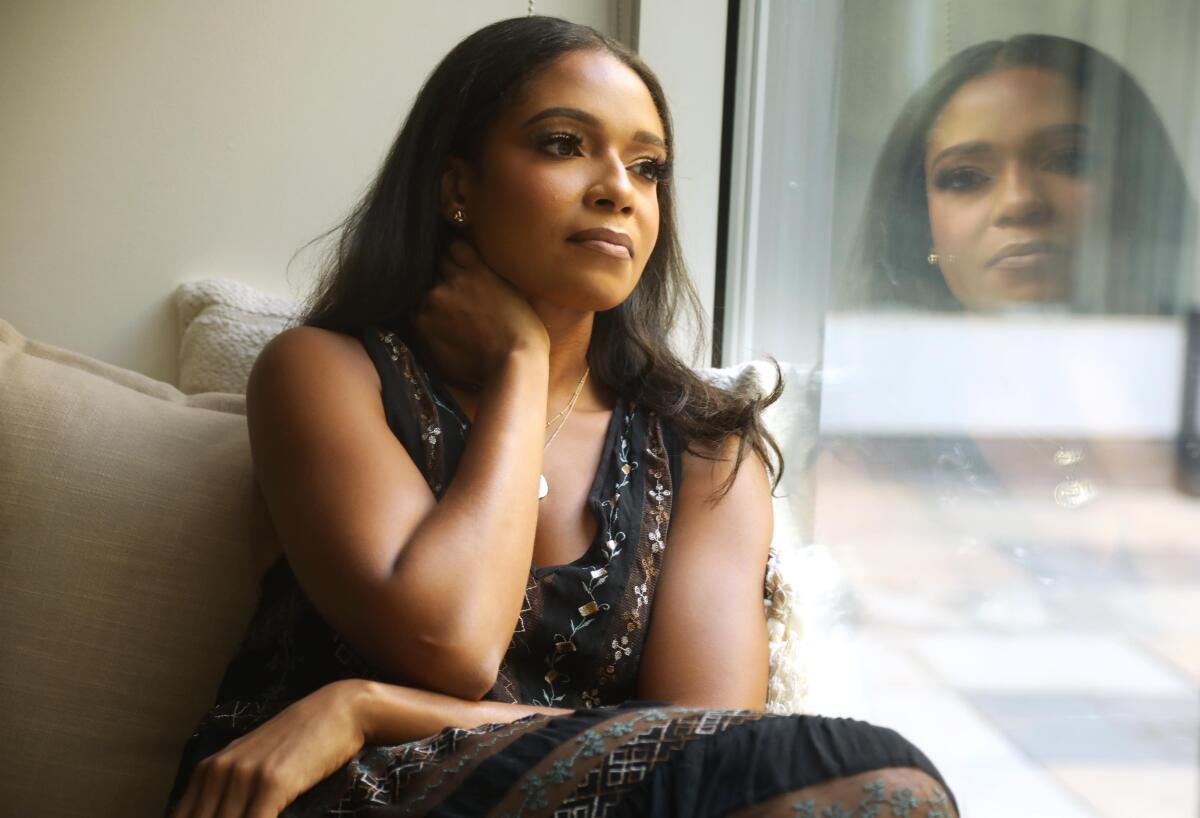Don’t take Martin Scorsese for granted

It’s a beautiful day in the neighborhood. And L.A. boasts a host of them. So if you’re bored by your surroundings, we’ve got these neighborhood guides to inspire some exploration — or, who knows, maybe relocation. And, of course, the whole project is titled “This Must Be the Place” because (I don’t know if this is actually the reason) who can get that Talking Heads song out of your head once you hear it. (And we’ve been hearing it a lot lately.)
From the Oscars to the Emmys.
Get the Envelope newsletter for exclusive awards season coverage, behind-the-scenes stories from the Envelope podcast and columnist Glenn Whipp’s must-read analysis.
You may occasionally receive promotional content from the Los Angeles Times.
I’m Glenn Whipp, columnist for the Los Angeles Times and host of The Envelope’s Friday newsletter. You know another reason why it’s a beautiful day in the neighborhood? There’s a new Martin Scorsese movie in theaters.
‘Killers of the Flower Moon’ hits theaters
My pal Justin Chang’s review of Martin Scorsese’s latest film ran with this headline: “‘Killers of the Flower Moon’ is a powerful historical epic — and a qualified triumph.” A nice summary, though being a musical theater fan, I did appreciate his social media post that read: “You’re not doin’ fine, Oklahoma.”
And now I can’t get that song out of my head.
“Killers of the Flower Moon,” adapted from David Grann’s 2017 bestseller, tells the story of how wealthy members of the Osage Nation were murdered for their money and oil-rich land in 1920s Oklahoma. The film focuses on a young Osage woman, Mollie (Lily Gladstone), who is courted by a shiftless World War I vet, Ernest (Leonardo DiCaprio), at the behest of his wealthy uncle, William K. Hale (Robert De Niro). Hale wants power. Ernest craves pleasure. And Mollie, though not a fool, simply wants love. Those conflicting desires play out over the film’s 3½-hour running time. It’s an intimate epic, gripping and, ultimately, heartbreaking.
Scorsese’s last movie, “The Irishman,” earned 10 Oscar nominations, and “Killers of the Flower Moon” seems poised to equal that. Maybe it’ll even win one, something “The Irishman” didn’t manage. Gladstone has decided to compete in the lead actress category, though with her character sidelined for much of the film, she plausibly could have gone supporting — and probably won.
Who can begrudge her decision, though? Gladstone gives the movie its emotional impact and it’s Mollie whom you’ll remember long after the film has ended. I saw “Killers” shortly after its Cannes premiere in May, and I can’t wait to revisit it. And I’m not waiting for it to hit Apple TV+ later this year. This is a big-swing movie that demands your full attention.

Annette Bening, Jodie Foster make a great team in ‘Nyad’
Justin and I caught “Nyad,” an inspirational sports movie about long-distance swimmer Diana Nyad’s historic 110-mile, 53-hour swim from Cuba to Florida, last month at the Telluride Film Festival. Justin wrote about it, grouping it with a couple of other biopics (“Rustin” and “Wildcat”), calling it “as queasily visceral as you’d want it to be, and sometimes more so.” And though he was struck by the ferociousness of Annette Bening’s turn as Nyad, he left the movie thinking about Jodie Foster, who plays her best friend.
I liked it too, writing that Bening plays Nyad, who was 64 when she finally succeeded, as an egotistical, difficult, determined obsessive — and how many times do you get to see a woman like that as the star of a movie? Bening’s fierceness is matched by Foster, terrific as Nyad’s loyal coach and bestie. Nyad is a controversial figure, and some aspects of this marathon swim have come under scrutiny. But her message resonates: There’s no expiration date on chasing your dreams. Me? I’m just aiming to replicate Foster’s abs when I turn 60.
You can see “Nyad” in theaters now, and it’ll begin streaming on Netflix on Nov. 3. Both Bening and Foster have strong cases for Oscar nominations, though the endless SAG-AFTRA strike and its restrictions on promotional appearances hamper a small, star-driven movie like this.

Enjoying this newsletter? Consider subscribing to the Los Angeles Times
Your support helps us deliver the news that matters most. Become a subscriber.
Former Oscars diversity chief reflects on her exit
When an editor at The Times asked me to read a guest column by Jeanell English, former executive vice president, impact and inclusion, for the Academy of Motion Picture Arts and Sciences, I was hooked from the unusual opening.
“Like most women,” English writes, “I share an intimate relationship with my gynecologist. I went to see her during my last week working for the Academy of Motion Picture Arts and Sciences.
“‘When was your last period?’ she asked. I hesitated before responding.
“‘Actually, my last period is the first one I had this year. It came just over a month ago, the week after I resigned from my job.’”
English detailed her reasons for leaving the academy in a frank, thoughtful column that stands as a must-read for anyone wondering why so many Black women in diversity, equity, accessibility and inclusion (DEAI) roles in Hollywood have been leaving their jobs.
“In my role at the academy, I sat in the crossfire between the communities I was advocating for and those I was calling on to champion change,” English writes. “On both sides, there was fear. Fear made it challenging for those who are underrepresented within the industry to trust that I had their best interest at heart. Given the history of the industry, there was skepticism. They needed to know that I not only heard their concerns but felt them. There were also people in positions of power who feared change, feared losing relevance, feared losing money … and feared being canceled.
“Fear created an impasse,” she continues. “It fueled a scarcity mind-set, as opposed to one of abundance. It prevented artists, executives, advocates and allies from being able to sincerely listen, to understand without becoming defensive. And it provoked resistance to collaboration and creative thinking, a stance that has slowed or halted shifts not only at the academy but across the entire industry. Prioritizing DEAI is not the zero-sum game it is often perceived to be.”

Feedback?
I’d love to hear from you. Email me at [email protected].
Can’t get enough about awards season? Follow me at @glennwhipp on Twitter.
From the Oscars to the Emmys.
Get the Envelope newsletter for exclusive awards season coverage, behind-the-scenes stories from the Envelope podcast and columnist Glenn Whipp’s must-read analysis.
You may occasionally receive promotional content from the Los Angeles Times.




